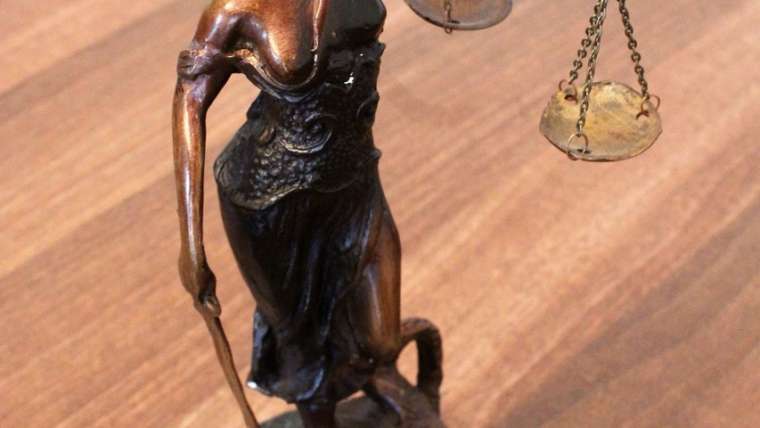Hidden Defects in Property Purchase
What happens if, after acquiring a property, significant defects are discovered that, if known earlier, would have led you to avoid the purchase or negotiate a substantial price reduction? These are known as hidden defects.
These are significant defects, not merely finishing flaws
It is not uncommon for hidden defects to appear within six months of the property purchase between private parties. This situation occurs more often than one might think. Our Civil Code regulates such cases, stating that if certain conditions are met, the buyer may claim against the seller, provided the defects appear within six months and the claim is made within that period.
Common Examples of Hidden Defects
Some of the most frequent hidden defects in buildings include:
- Humidity and leaks due to defects in the roof, flooring, etc.
- Significant cracks that may compromise safety.
- Defects in finishes, such as flooring, paint, or coatings.
- Detachment of bricks or cladding materials.
- Structural problems affecting the foundation or stability of the building, posing serious risks to people.
As seen, hidden defects can range from minor to severe issues. For this reason, it is crucial for the property buyer to seek technical advice, regardless of the initial appearance of the defects.

Timeframe for Claims
From the moment the property is delivered, the limitation period is six months. This period cannot be interrupted, meaning any action taken within that period (such as sending a notice to the seller) does not reset the clock. Therefore, it is essential to act promptly and ensure compliance with the established deadlines.
An example of this limitation is that if the buyer detects defects and notifies the seller within the period, the elapsed time until then will not pause or reset. This underscores the importance of seeking legal advice from the outset.
Options for Buyers Facing Hidden Defects
If the buyer encounters a case of hidden defects, they have two options within the six-month period:
- Terminate the contract: This involves canceling the sale, returning the property to the seller, and receiving a refund of expenses incurred.
- Request a proportional price reduction: The amount of the reduction will be determined by experts who assess the extent of the defects.
At Carlos Baño León Lawyers, we have handled numerous cases of this nature. For instance, in two favorable court rulings obtained by our firm, buyers successfully claimed compensation for hidden defects in their properties.
What About New Properties?
In the case of new properties, the hidden defects regime does not apply. Instead, actions under the Building Regulation Act (LOE) are used. This law establishes three types of responsibilities based on the severity of the defects:
- Ten-year liability: For structural damage affecting the foundation, beams, slabs, or similar elements.
- Five-year liability: For defects in construction or installations that compromise habitability.
- One-year liability: For damages affecting finishes.
The LOE provides greater protection for new property buyers, offering extended timeframes and clear responsibilities for developers and builders.
Limits to Seller Liability
It is important to understand that the seller’s obligation to respond for hidden defects is contractual in nature and has certain limits. The law states that the seller is not liable in the following cases:
- If the defects were evident and visible to the naked eye.
- If the buyer is an expert or professional who, due to their trade, should have easily identified the defects.
- If the buyer and seller expressly agree to exempt the seller from liability, provided the seller acted in good faith. If the seller knowingly conceals defects, the exemption agreement will not be valid.
What Happens After Six Months?
If hidden defects appear after six months, the buyer is not left unprotected, although different regulations apply. In such cases, claims may be based on other legal grounds, such as breach of contract, or in some instances, direct claims against the builder or developer if the defects are construction-related.
The law aims to balance the rights and responsibilities of both parties. On one hand, it protects the buyer against severe defects; on the other, it recognizes the buyer’s responsibility to properly inspect the property and avoid claims for visible defects.
Real Estate Lawyer: Our Opinion
From our experience at Carlos Baño Lawyers, it is crucial to act quickly and seek specialized advice from the start of the property purchase process. Detecting hidden defects can lead to significant legal and financial conflicts, but with proper management, favorable outcomes are achievable for buyers.
Having a technician or expert accompany you during the initial inspection is an essential preventive measure. Additionally, in the event of a conflict, our firm is prepared to advise and represent you, ensuring your rights are fully defended.
To address any questions about hidden defects or to initiate a claim process, feel free to contact us. At Carlos Baño Lawyers, we are here to offer you personalized and effective solutions.
You can also find us on Google Maps and visit our offices in Alicante for direct assistance.


